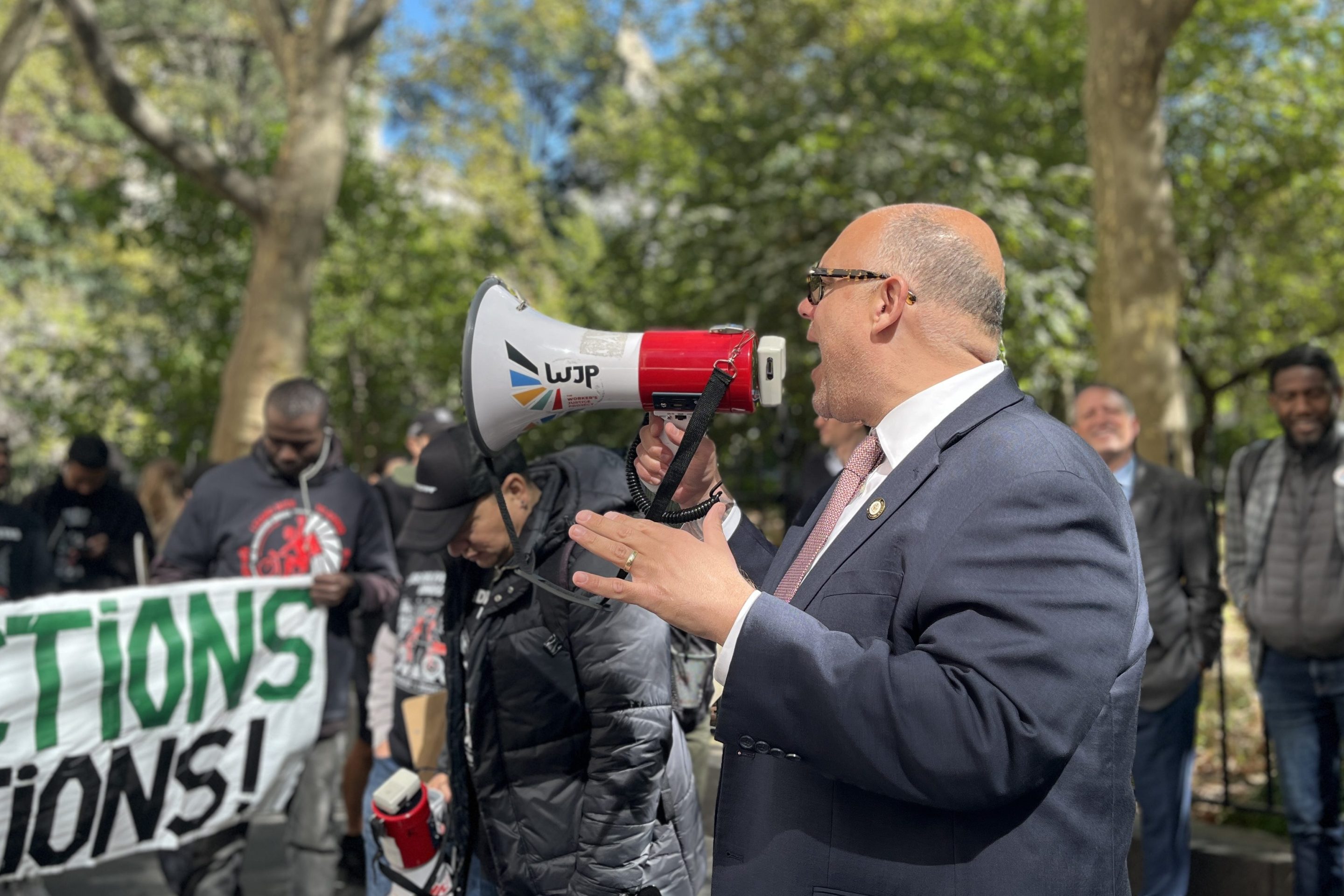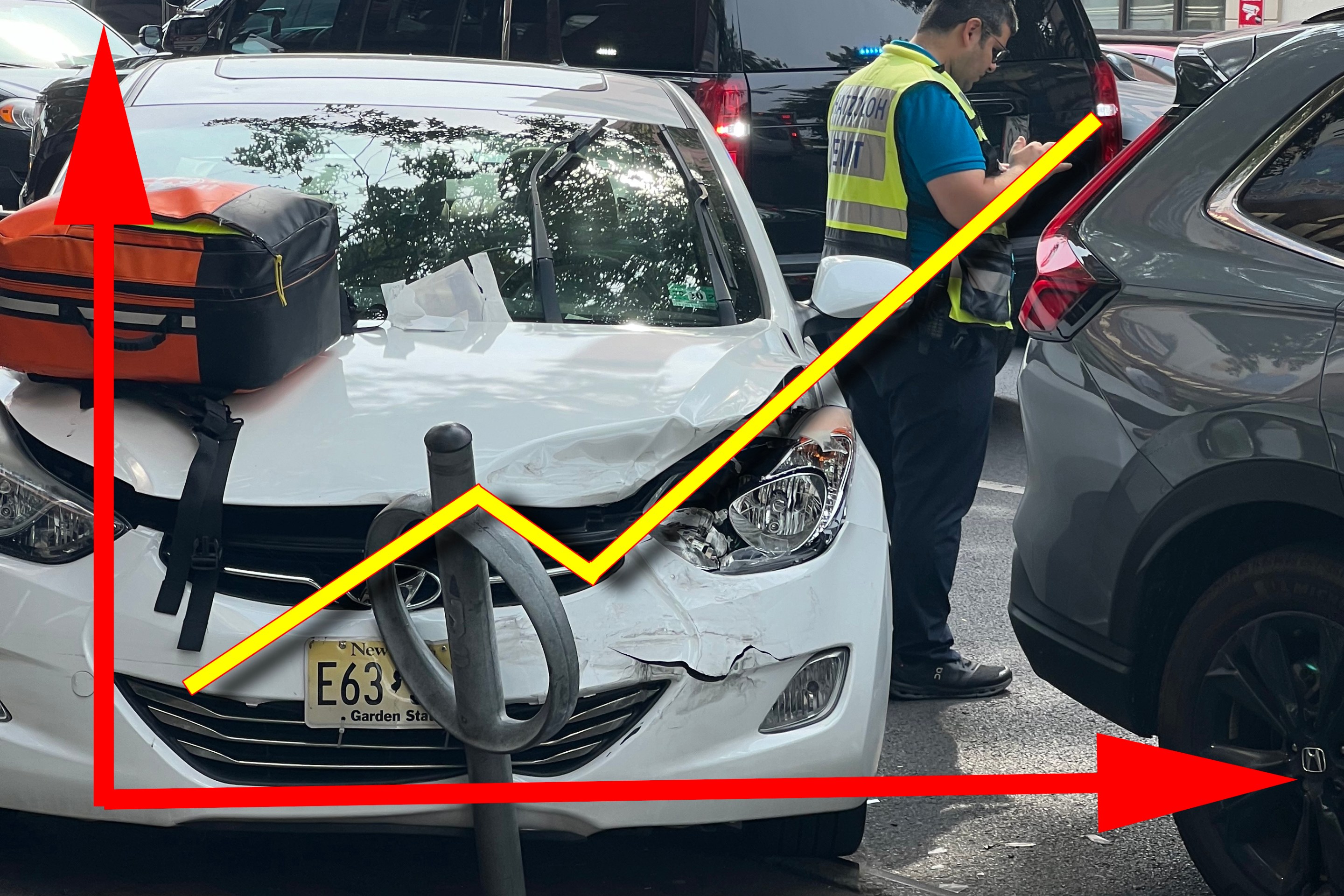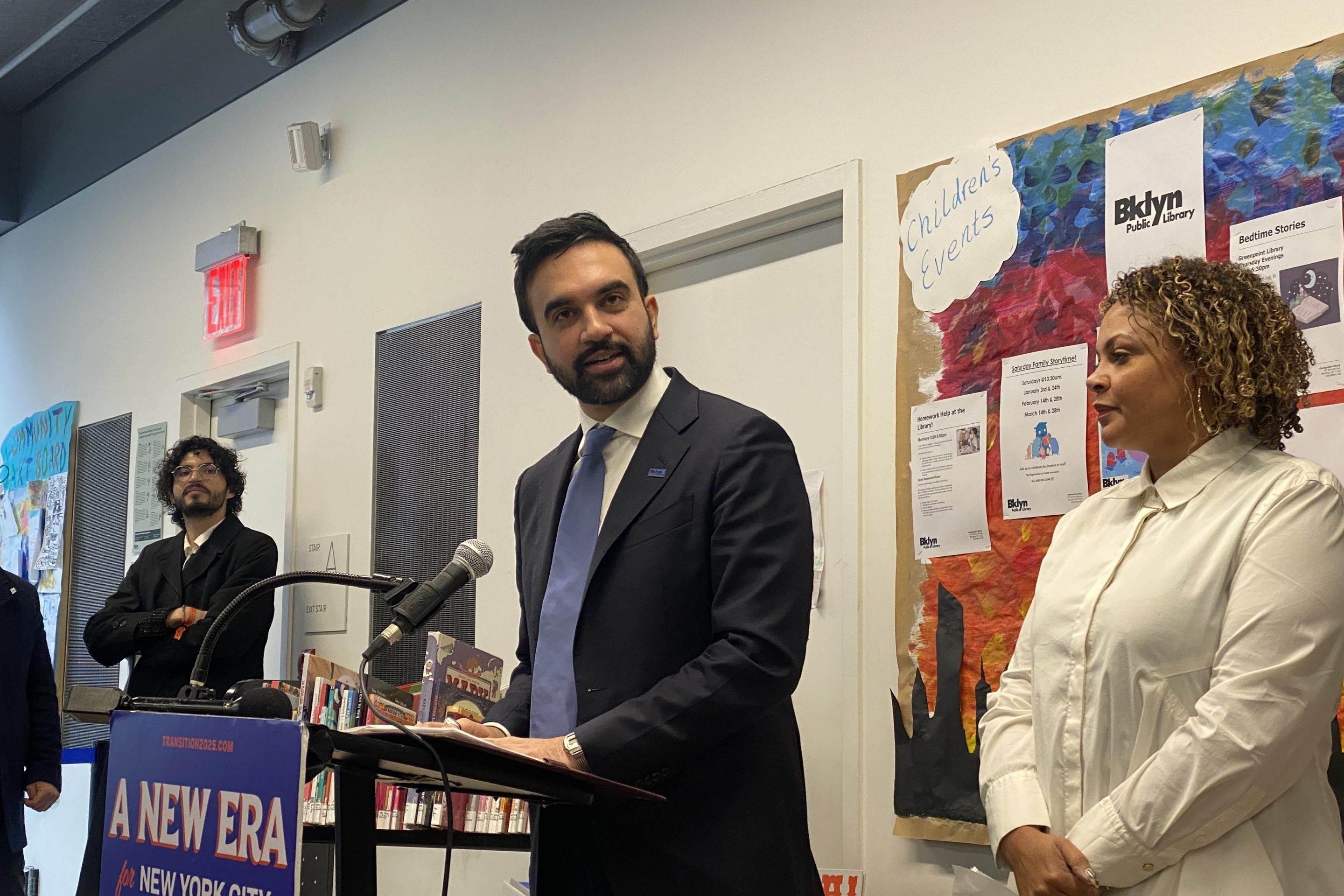 One in four American motorists text and drive, despite the fact that distracted driving is implicated in 80 percent of all crashes. Photo: Switched.
One in four American motorists text and drive, despite the fact that distracted driving is implicated in 80 percent of all crashes. Photo: Switched.When reports surfaced last week that Assembly Member David Gantt intends to block a statewide texting-while-driving ban (again), we were curious: What does the chairman of the transportation committee have against a common-sense measure to discourage dangerous driving habits? After placing a call to Gantt's office yesterday morning, we're still waiting to hear back. The Rochester representative is famously circumspect when it comes to explaining his decisions, so the lack of a timely reply came as no surprise. After all, he doesn't return calls to members of his own committee, either.
Buffalo Assembly Member Mark Schroeder called Gantt's office last Wednesday seeking clarification on the chairman's plans for the texting-while-driving ban. The bill needs Gantt's blessing to get on the transportation committee calendar, and Schroeder wanted to know the deal. Would Gantt allow the bill to come up for a vote? Like us, Schroeder is still waiting for an answer.
Bill sponsor Felix Ortiz, a Brooklyn Democrat who has pushed legislation to deter distracted driving for more than a decade, was able to get a few minutes of face time with Gantt last week. In classic foot-dragging style, the chairman told Ortiz that he would prefer to address distracted driving with a more "comprehensive" bill that penalizes all forms of inattentiveness behind the wheel. Seems reasonable enough, right? Well, not quite. As Ortiz told Streetsblog: "This is how things die here."
Gantt's gambit is a tried-and-true Albany maneuver, deployed to kill bills softly by offering an alternative that can be spun as an acceptable substitute. But how plausible is Gantt's alternative?
The chairman has his own bill, no. 786, that would create a new class of traffic infraction called "inattentive driving," defined loosely as any non-driving activity that "unreasonably interferes with the free and proper use of the public highway" or "unreasonably endangers other people who are using the public highways." That may sound good in principle, but the language leaves too much unspecified to serve as effective legislation, or to garner the support needed to become law in the first place.
"Texting needs to be addressed by itself," Ortiz said. "It doesn’t make too much sense to have a comprehensive piece of legislation."
Compared to Gantt's bill, the texting ban gets to the point much more directly. It would simply extend the prohibition against cell phone use while driving to include all texting activity.
If the proof of a bill's legitimacy is in its co-sponsors, then Gantt's bill is pure smokescreen. Introduced more than four months ago, it has no co-sponsors and no corresponding version in the State Senate. The texting ban, by contrast, enjoys the support of 48 co-sponsors. A Senate version has already cleared that chamber three years running.
Given the strong rank-and-file support for the texting ban, it's remarkable that one member of the Assembly can effectively halt its progress. While press reports hint that proponents of the bill may somehow skirt Gantt's stonewalling, the way forward is murky at best. A spokesperson for Assembly Speaker Sheldon Silver said that it's up to the transportation committee chair to bring any bill up for a vote, and that there are no plans to consider any distracted driving legislation outside the normal committee process. The Speaker's office did not answer requests to comment specifically about chairman Gantt's position on the proposed texting ban.





